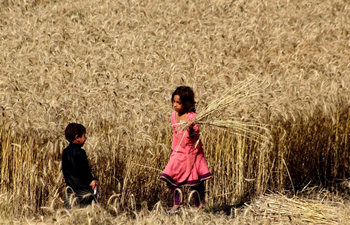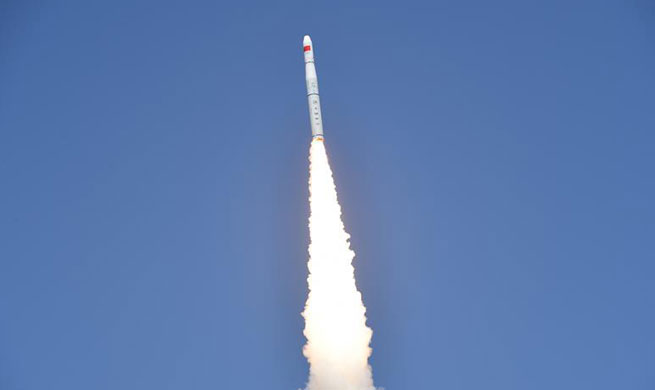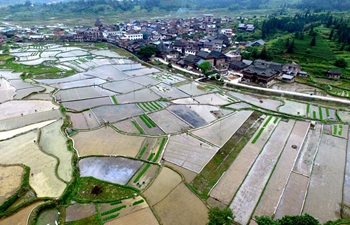KUNMING, April 26 (Xinhua) -- Born in a coffee farmer's family in Pu'er, a tea and coffee growing heartland, Hua Runmei never took a sip of coffee before she moved to another city for her college education.
Working part-time there in a cafe, Hua first tasted the roasted coffee and instantly fell in love with its special flavor. But what surprised her most was its high price, and she wondered why coffee farmers from her hometown only gained tiny margins.
After graduation in 2015, Hua decided to return to her hometown, helping farmers like her father improve the quality of coffee and drive up the price.
Surrounded by undulating green hills, Pu'er, a border city in southwest China's Yunnan Province, is home to the country's most sought-after tea, Pu-erh.
Over the past century, Yunnan made several minor attempts at growing coffee, but it wasn't until Nestle first introduced the Catimor variety to Pu'er in late 1980s that the coffee business really took off.
Statistics from the provincial agricultural department showed that Yunnan produced 136,000 tonnes of coffee beans last year, accounting for more than 95 percent of total production nationwide, with half coming from Pu'er.
Most coffee growers in the region are individual farmers. Their coffee beans are usually purchased by the world's big coffee brands as raw material. However, the sagging global coffee prices have squeezed profits for farmers in recent years.
"Some farmers even wanted to cut down their coffee plants for other cash crops instead," Hua said.
However, challenges spur innovation, and Hua found that specialty coffee that uses high-quality beans had a much higher and more stable price compared to the global fluctuations in commercial coffee.
According to the Specialty Coffee Association, coffee which scores 80 points or above on a 100-point scale is graded as "specialty".
Cooperating with individual coffee farmers, she set up a growing base covering 67 hectares and built a processing plant.
"Specialty coffee has distinct flavors, such as fruit and herbal flavors or flower aromas. The coffee flavor is decided by every step of coffee production," Hua said.
Learning from the Internet, books and coffee professionals, she became an expert and guided locals to treat each part of the production process with dedication, from weeding, pest control to picking the cherries and drying the beans.
By chance, Chen Shanqi, a coffee expert from Shanghai-based specialty coffee brand Seesaw, tasted Hua's coffee and was deeply impressed by its flavor.
Chen's job is to seek specialty coffee beans from world-known production bases such as Ethiopia and Columbia. After inspecting Hua's coffee farm, he decided to purchase the beans.
This year, Hua obtained an order of 20 tonnes of specialty coffee beans from Seesaw. The price is more than three times that of commercial-grade beans offered by global coffee giants.
Now Hua has a new ambition -- to make coffee farmers better understand coffee.
"Some farmers grew coffee beans for a lifetime, but they never took a sip from their own beans," Hua said.
She regularly invites farmers to join coffee tasting events at her farm, hoping to give them a direct feel for coffee bean quality and let them know the importance of the production process.
Seeing a big market opportunity, more offspring from the first generation of coffee farmers in Pu'er are now eager to explore the coffee market.
China is among the top 10 coffee producers worldwide. An industry report showed that the country's coffee consumption is growing at 15-20 percent annually, much faster than the international average growth rate of 2 percent.
Ted Lingle, a senior advisor with the Coffee Quality Institute, said that the coffee craze had swept across China, where, as a traditional tea-drinking country, coffee is more and more favored by young Chinese urbanites.

















